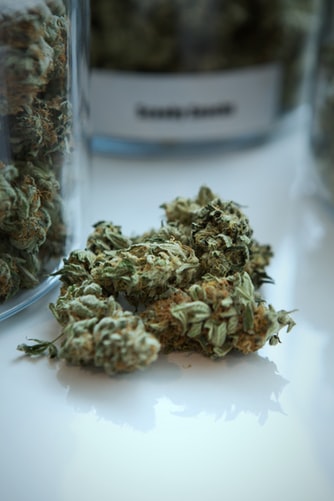U.S, February 24, 2020 (GREENENTREPRENEUR) The unlicensed market is still thriving in cannabis-legal states. Here are some tips on how to avoid unlicensed products and stores.
California loves its cannabis. As one of the largest markets in the world, the state sold more than $3 billion worth of cannabis products in 2019. Despite the apparent success of California’s legal cannabis market, the unlicensed market still thrives. According to one estimate by KTLA, approximately 75 percent of cannabis sales in the state are done under the table— not in a legal dispensary.
Although some consumers turn to the illicit market as a cheaper alternative to legal shops, many more may be doing so unwittingly. One audit by the United Cannabis Association found that there were roughly 2,835 unlicensed dispensaries and delivery services operating in California.
Given that these businesses do not place large signs stating, “Unlicensed Cannabis Dispensary” outside, it can be hard to differentiate a legal dispensary from an illegal one. Here are a few red flags to watch out for if you’re unsure about the status of the dispensary you’re visiting.
Questions to help uncover if you’re at an illegal dispensary
Do they check your ID?
All legal dispensaries are required to check a customer’s ID before they even enter the store. If your dispensary doesn’t ask to see your ID at the door, there’s a good chance you walked into an illegal dispensary.
When do they close?
Under California state law, cannabis dispensaries must close up shop by 10:00 PM. If your local dispensary stays open well past 10:00 PM, then it is most likely an illegal dispensary. Most legal states, including Colorado and Washington, have hours varying by county. Check government-owned websites for your state’s market to see legal hours of operation if you aren’t sure.
Where are the test results?
A huge red flag that you are shopping at an illegal dispensary is whether or not you can view the product’s lab test results. While this is not required under California state law, most products and dispensaries will gladly share that information available to consumers. If they don’t, you should think twice before making a purchase.
Does their license have a QR Code?
Under a new regulation, cannabis businesses in California must have a QR code on their license. It exists so that customers can scan and verify that they are shopping at a licensed cannabis dispensary. If your local shop doesn’t have one, there is a strong possibility they are not properly licensed.
Do they tax you appropriately?
Paying sales tax is probably the least enjoyable part of any purchase. However, if your favorite dispensary does not charge you taxes or doesn’t tax you at the appropriate rate, then they are most likely an unregulated dispensary. Here’s a guide to help you understand California’s cannabis tax laws.
Is the packaging childproof?
Child-resistant packaging is required for all cannabis products in every state that offers legalized cannabis. If you’re still getting cannabis from Ziploc bags or vacuum-sealed containers that are easy to open, your cannabis is definitely not legal.
Is there a license number on your receipt?
Most consumers have gotten out of the habit of checking their printed receipts, but this should never be overlooked after a cannabis purchase. Every cannabis dispensary receipt should display the dispensary’s license number. If your receipt has no such information, that should be cause for concern.
What’s the big deal?
So, why should consumers care whether their local dispensary is licensed or not? There are three main reasons why consumers should avoid illegal dispensaries.
The first and most obvious reason is safety. When shopping at a licensed dispensary, customers can rest assured that the retailers have done their due diligence to make sure that their products are compliant and safe to consume. Regulated products are fully traceable and consumers have the ability to take legal action against the retailer or manufacturer if they have a dangerous reaction to the product. However, when customers purchase from an illegal dispensary, they have no legal recourse, peace of mind, or guarantee of safety, as evidenced by the vape crisis that stemmed from the illicit market.
Customers should also avoid illegal dispensaries because they could be a hotbed for crimes like identity theft. Regulated California dispensaries will scan customer IDs and securely save customer information for compliance purposes. However, when customers visit an illegal dispensary, there is a chance they could take your private information and sell it to third party companies.
Perhaps the most important reason to avoid illegal dispensaries is that it hurts the regulated cannabis industry. By shopping at illegal dispensaries, customers make it harder for the industry to thrive. Cheap cannabis might be nice, but is it worth destroying the legal industry that can provide wider access to medical patients and for adult-use purposes in a safe and regulated way?
Consumers should practice caution and apply the same standards that they have for quality and transparency in other packaged goods to the cannabis industry. They don’t have to be cannabis experts to ask the right questions that will ensure their own safety. If consumers have any lingering doubts about the legal status of their preferred dispensaries, they can perform a simple license search online on the California Cannabis Portal.







